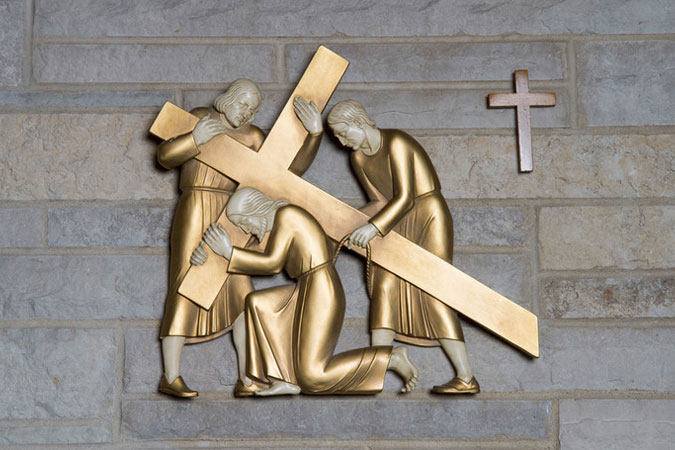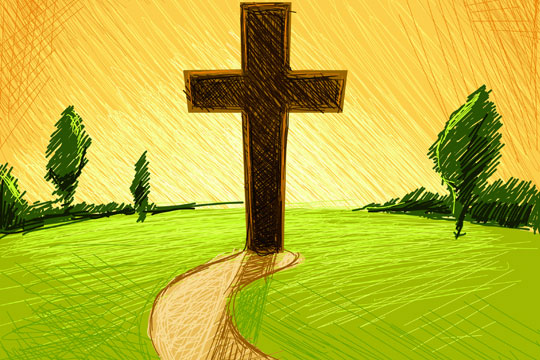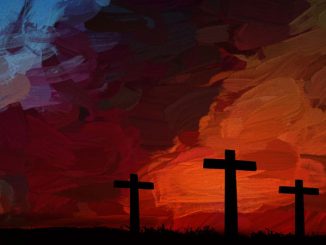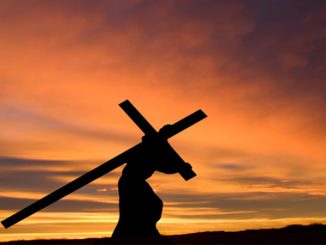
As we approach Palm Sunday, Holy Week, and the Triduum, our focus is increasingly on the Cross of Jesus Christ. On Holy Thursday, the entrance antiphon proclaims, “We should glory in the Cross of our Lord, Jesus Christ!” On Good Friday, we venerate the Cross. Throughout Lent, we have been praying the Stations of the Cross.
Historians tell us that victims carried the crossbeam on their way to the site of crucifixion where upright “poles” were already in place and that the crossbeam weighed approximately 100 pounds. It is no wonder that Jesus, in his weakened condition, fell three times under the weight of the Cross.
But there is another kind of heaviness that we can and must ascribe to the Cross—the kind of heaviness that we associate with words such as gravitas and profundity. As we teach the Good News of Jesus Christ, we can be tempted to always want to make faith formation fun. While I have nothing against fun, we must remember that, at the heart of the Gospel message, we encounter the Cross, an instrument of death. And, while we don’t want to frighten the young people we teach with too many descriptions and visuals of the gruesomeness of crucifixion, we do need to teach them the gravitas of the Gospel message, which is that, in order to gain eternal life, we must die to our sinful selves. Gravitas is defined as a solemn seriousness and reverence for a situation of profound gravity (heaviness). Our job as catechists is not to entertain but rather to engage. Young people are capable, at varying levels, of engaging with the profound. They need to know that Jesus entered into the brokenness of human life, experienced it fully, and triumphed over it. Only then will they be able to turn to Jesus in their own moments of brokenness—knowing that Jesus understands their pain—and place their faith in the Resurrection.
As we enter these holy days, resist the temptation to sugarcoat the Gospel or to jump too quickly to the Resurrection. Rather, use these days to help young people understand that they can encounter Jesus in the brokenness they may be experiencing in their own lives so that they will know they are never alone and can trust the One who has conquered the heaviness of the Cross.
Question for reflection: What are some of the heavy things that young people today—including those you teach—are already carrying?
The seasonal lessons found in Christ Our Life or Finding God can help you in entering into Holy Week with your group in age-appropriate ways.





Be the first to comment